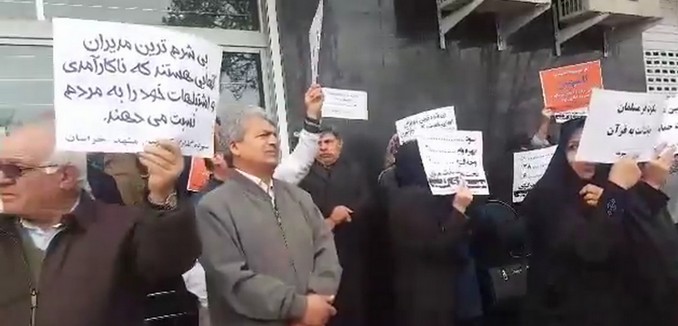When Federica Mogherini, the EU’s High Representative for Foreign Affairs finally spoke up about the protests that have recently roiled Iran, she didn’t speak up for freedom and demand that the government respect the rights of the protesters, but rather, she offered a non-judgmental “we expect all concerned to refrain from violence,” after the government had already killed at least 22 people. In the absence of a strong response from Europe, America’s leadership is all the “more critical,” Josh Block, president and CEO of The Israel Project wrote in an op-ed published Sunday in The Times of Israel.
Block noted that in the United States, politicians across the spectrum, “everyone from President Donald Trump and Marco Rubio to Bernie Sanders and Bob Menendez,” voiced their support for Iranians speaking out against the financial mismanagement of the regime leading to widespread poverty. Chants of “We don’t want the Islamic Republic,” and “Leave Syria, leave Gaza, leave Lebanon,” reveal that people are tired of being asked to support their government’s far reaching foreign adventures.
Mogherini’s neutral statement was followed by similar statements from the British, German, French and Swiss governments. Two weeks ago, Iranian Foreign Minister Mohammad Javad Zarif was welcomed in Brussels to discuss the 2015 nuclear deal; he was not shunned as representative of a government repressing its people but as an honored equal. Sweden’s representative to the United Nations said, “Human rights violations in Iran must be separated from [the Iran nuclear deal],” when the United States called for an emergency session of the United Nations Security Council to discuss Iran’s brutal repression of the protests. The Swedish ambassador made explicit what Block characterized as “the anti-democratic effect the agreement is having on world affairs.”
“Europe’s unwillingness to clip Iran’s wings of terror and oppression makes America’s leadership more critical,” Block wrote. “Not for the first time has Washington been at odds with European governments since Trump was elected president. Whether the historical announcement to recognize Jerusalem as the capital of Israel, or courageous efforts to confront blatant anti-Semitism at the United Nations, America has sometimes stood proudest when it has stood alone.”
The designation of Iran’s Islamic Revolutionary Guard Corps (IRGC) as a terrorist organization and a tough stance on the nuclear deal, have formed a solid basis for a strong American response to Iran’s continued repression. Block argued that the U.S. should follow through by sanctioning those institutions that enable the regime’s ongoing repression of its people including the Central Bank of Iran and EIKO, a foundation controlled by Supreme Leader Ayatollah Ali Khamenei.
While Europe’s timid response to Iran’s repression may be driven by the European appetite for Iranian business, sanctioning those institutions that are intertwined with Iran’s ruling class will make European business leaders think twice about engaging with their Iranian counterparts. Will Europe’s businesses pursue opportunities in Iran’s $400 billion economy if it means being shunned the U.S.’s $19 trillion economy?
While members of Iran’s government may act more welcoming to the West, Block observed, “They are still driven by the same ideology of clerical fascism that crushed protesters in 1979 and again in 2009.” The “silence, or even complicity, of European governments towards the repression in Iran means that “it is now up to America to say, ‘no more.'”
[Photo: Twitter]




